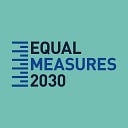How the Private Sector can Leverage Data to Drive Gender Equality
By: Alison Holder (Equal Measures 2030), Katherine Maloney (KPMG), Shamarukh Mohiuddin (U.S. Chamber of Commerce Foundation)
On September 21, on the side of the UN General Assembly, a diverse collection of business leaders representing different sectors and industries, joined together to show their commitment to the Global Goals and to ‘Sparking a Data Revolution to Achieve Gender Equality’.
Hosted by KPMG, the US Chamber of Commerce Foundation and a new multi-sectoral partnership, Equal Measures 2030, the event was a breakfast roundtable filled with inspirational case studies, innovative ideas and tangible commitments from business leaders to achieve the ambitious global agenda for girls and women.
About the partnership
As a founding partner of Equal Measures 2030, KPMG is committed to catalysing greater engagement from business to achieve gender equality across the global goals. The company has a global presence and technical expertise across diverse industries, as well as within the international development sector. This positions KPMG to help stakeholders at every level — government, business, and not-for-profit organizations to work collaboratively to use innovative data analytics to achieve these measurable targets.
Comprised of nine additional partners, including Plan International, The Bill & Melinda Gates Foundation, ONE Campaign and other INGO and grassroots partners, Equal Measures 2030 was formed with the commitment to join diverse strengths to connect data and evidence with advocacy and action. Recognizing the collaborative effort that is needed to achieve the Global Goals, these organizations are pooling technical resources, time, and expertise to ensure that decision-makers, corporations, and advocates have access to the information needed to accelerate progress.
Purpose of the event
Collaborating as co-hosts for this event, the U.S. Chamber of Commerce Foundation brought key private sector companies to the table in the form of speakers and attendees, as part of its continued work and mission to harness the power of business to support women and girls’ empowerment.
The dynamic group of industry leaders kicking off the discussion included Global Head of Citizenship, Lord Michael Hastings of KPMG International, Steven Adler, Chief Data Strategist at IBM, and Angela Sun, Global Head of Strategy and Corporate Development at Bloomberg LP. Each speaker brought unique insights into how data can drive development and why corporations are uniquely positioned to lead the charge for progress for girls and women. They underscored the need for quantitative and qualitative data.
Following their remarks, a panel discussion ensued with Henriette Kolb, Head of IFC Gender Secretariat at International Finance Corporation, Rebecca Ruf, Vice President of Programs at the Global Banking Alliance for Women, and Yolanda Londoño, Vice President of Global Social Responsibility at Tupperware Brands Corporation. They brought insights from their diverse sectors to showcase how new technologies, systems, and tools can help us solve problems creatively and reach beyond an echo chamber of civil society and UN agencies.
Ultimately, the goal of the private sector breakfast was simple: generate concrete ideas, commitments, and enthusiasm for the role of business to mobilize a data revolution for girls and women. Leveraging initiatives such as Equal Measures 2030, corporations have a unique power to reach new audiences and leverage their in-house skills, assets, resources, and data to help better track progress on gender equality and ensure that the right data is in the hands of decision-makers.
Role of the private sector
It must also be acknowledged that corporations, such as those in the room on September 21, have a unique ability to influence governments. If policymakers hear from potential investors that a lack of progress on gender equality is hampering their country’s business climate, that message will surely spark a behavioural shift and inspire change.
The value of time-sensitive data is not new to business. Businesses use data and evidence every day to make market-shaping decisions — ensuring that teams are meeting objectives, that enterprise is growing at a healthy pace, and investments are profitable. We now need a collective effort to do the same for gender equality if we’re to have any chance of reaching the SDGs by 2030.
Everyone has a role to play in ensuring we meet these ambitious targets. Our organizations are here to help your company find its unique and critical value-add to significant aspiration.
This blog first appeared on the US Chamber of Commerce Foundation website.
